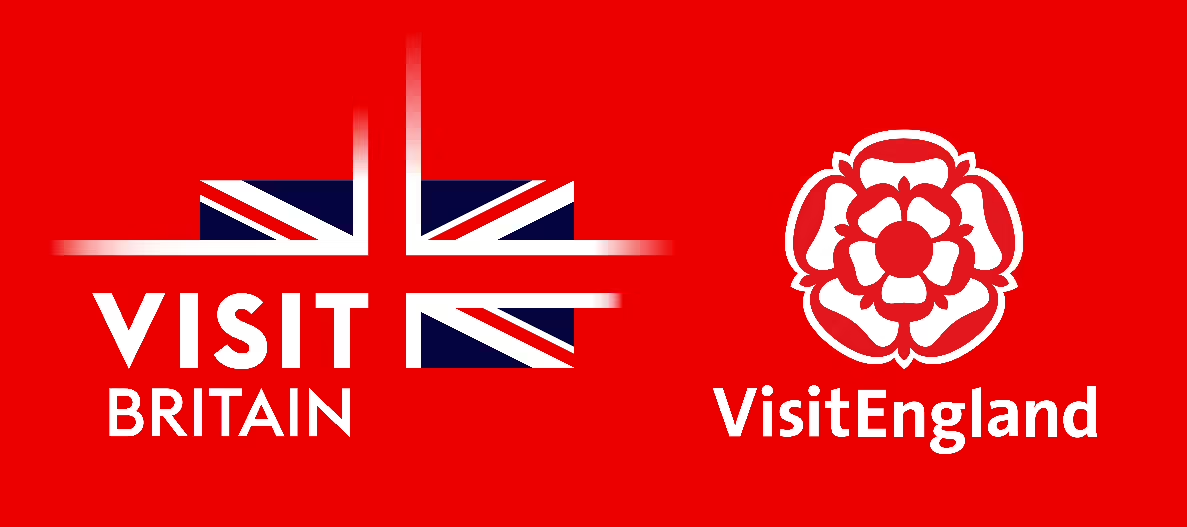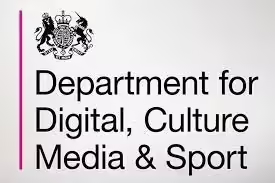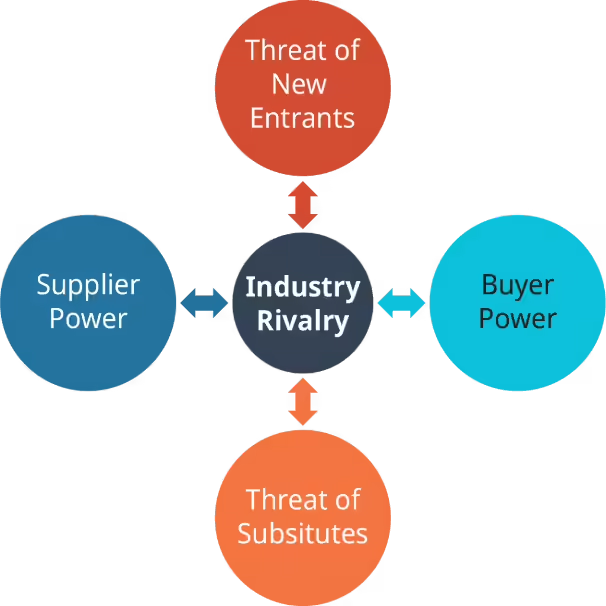Visit Britain: Strategic Analysis of UK Tourism Marketing Case Study
Visit Britain: Strategic Analysis of UK Tourism Marketing Case Study By Native Assignment Help.
Ph.D. Experts For Best Assistance
Plagiarism Free Content
AI Free Content
Enhancing Tourism Growth Through Effective Marketing Strategies
Are you in need of online assignment help in the UK with a free case study? Look no further than Native Assignment Help. We have a dedicated team of professionals committed to delivering customised support for your academic needs and ensuring you get excellent marks on all your assignments.
Introduction: Visit Britain: Strategic Analysis of UK Tourism Marketing
This research paper aims to elucidate the fundamental principles of tourism marketing and marketing audit, which serve as effective tools for comprehending the sustained growth and viability of the tourism sector (George, 2021). The comprehension of target market demographics, establishment of a unique brand value, cultivation of proficient communication abilities, staying abreast of current technological advancements, and nurturing positive relationships with diverse stakeholders are fundamental principles that underlie successful business practices (Luque-Martínez et al. 2019).
The marketing audit is a thorough evaluation that examines various facets of marketing, such as product targeting, market segmentation, marketing objectives, distribution channels, pricing and promotional strategies, and customer feedback. By means of undertaking this research, the objectives of identifying novel opportunities for growth and advancing sustainable tourism will be achieved. The present exploration centres on the historical context of Visit Britain and offers perspectives into the internal and external business environments of the organisation (Palav and Jagtap, 2020). Furthermore, the importance of ethics within the hospitality sector is underscored, alongside the necessity of comprehending the proper implementation of ethical conduct.
The study's findings and recommendations suggest that Visit Britain should prioritise effective communication and technological advancements to establish and maintain positive relationships with stakeholders (Fletcher, et. al. 2017). This will ensure the sustainability of the tourism industry in the long run. The study's discoveries and suggestions are available for perusal at this location. Moreover, it is imperative for the organisation to uphold ethical norms and acknowledge the potential impact of its activities on both the local community and the surrounding ecosystem. The present study provides a comprehensive examination of the marketing audit and the principles of tourism marketing in the tourism sector.

Figure 1: Visit Britain
Background of the Company
In 1969, the Development of Tourist Act facilitated the establishment of Visit Britain as a national tourist organisation in the United Kingdom. The aforementioned organisation is responsible for enhancing the nation's reputation as a desirable tourist destination. The organisation in question has received funding from the Department for Culture, Media, and Sport (DCMS), a governmental entity tasked with facilitating the growth of the tourism industry in the United Kingdom. DCMS is an acronym that refers to a governmental organisation in the United Kingdom that shares the same . Since 2015, the aforementioned organisation has functioned as a sole legal entity in collaboration with Visit Britain and Visit England. Furthermore, the lexicon employed by the organization has been modified to align with its revised position.

Figure 2: Digital Civil Service
The primary objective of the agency is to provide recommendations and suggestions to the government regarding enhancing the efficiency of the tourism sector and augmenting the influx of tourists. The primary objective of the organisation is to enhance brand value and bolster the workforce, thereby enabling the implementation of effective marketing strategies to promote the tourism sector in the United Kingdom. The government, being a public entity that operates autonomously, is obligated to adhere to specific regulations. The absence of adequate facilities and financial resources constitutes a constraining element that impedes progress and expansion in the future. Recently, Visit Britain launched a novel advertising initiative, "I Travel for Campaign," which exhibits ingenuity and efficacy. The objective of the promotional campaign is to showcase the travel patterns of some of the prominent clientele of the organisation. The primary objective of the organisation is to attain the status of the top travel service provider in the United Kingdom while simultaneously contributing towards the growth and enhancement of the local tourism industry.
External Analysis
The identification of customers/consumers and analysis of their needs
Visit Britain is a National Tourism Agency in the UK. It is primarily responsible to take initiatives for the promotion and development of the UK tourism industry in the country. To identify and analyse its customer’s needs, the agency uses various combinations of data as mentioned below:
- Psychographic Data:It includes customers’ taste, preferences, and attitudes towards tourism destinations and provides information about customers' social values, beliefs, and lifestyles. After getting complete knowledge about the Psychographic factors that have impacts and influence the needs of its valuable customers, Visit Britain understands these factors and makes marketing strategies accordingly (Nyanga et al. 2020).
- Demographic Data:In the context with Visit Britain, considering the following elements, which include gender, Age, Economic background, geographic locations of its ideal customers, etc. will affect the performance of the tourism business in the country's economy.
Further to improve the performance of the Tourism Industry in the UK, Visit Britain takes regular feedback from its valuable customers by conducting online surveys, sending questionnaires through email marketing, and asking for online reviews with the use of its Social Media Platforms.Additionally, Visit Britain regularly conducts research and development procedures to improve future growth and development in the tourism industry (Mulyani et. al. 2020).
Hence, the combination of both Psychographic data and Demographic data will help to understand and analyse Visit Britain's performance and leads towards the future course of measurable action.
The organisation’s competitive situation
Visit Britain operates in the competitive and dynamic hospitality and tourism business. An organization's external environment study identifies opportunities and dangers that could affect its competitive position.
Opportunities:
- Visit Britain may improve its performance by working with other partners to overcome regional tourism imbalances. This might encourage additional tourism locations across the country and promote Visit Britain as a comprehensive travel centre.
- Due to the UK's growing appeal as a tourist destination, Visit Britain's services have increased. Visit Britain can expand its consumer base and improve operations.
- Thirdly, effective marketing may engage potential visitors and build brand loyalty for VisitBritain. Visit Britain's market share and revenue may rise.
Threats:
- UK hospitality and tourism competitiveness threaten Visit Britain. The corporation must constantly improve its products and services to stay competitive and maintain market share.
- A tourism skills shortfall might threaten Visit Britain. Employee training and tourism market exploration are necessary to close the skills gap.
- Visit Britain has many ways to improve its standing in a competitive and dynamic sector. By working with stakeholders, promoting the UK as a vacation destination, and using good marketing, Visit Britain can succeed. Addressing talent shortages and improving offers is essential to staying competitive.
From the above analyses, it is evaluated that the travel and tourism industry is characterised by intense competition, and Visit Britain faces stiff competition from rival tourism boards and travel companies, both domestically and internationally. Visit Britain has identified its primary competitors in the market and is consistently analysing their business strategies to gain a competitive advantage. To formulate effective competitive strategies, a business conducts a SWOT analysis to assess its internal strengths and weaknesses, as well as external opportunities and threats. Visit Britain possesses a competitive edge due to its comprehensive network of partners, established brand recognition, and effective marketing strategies. The organisation is faced with several challenges, such as financial constraints, limited resources, and the impact of Brexit on the worldwide tourism industry.

 7 Years | Masters
7 Years | Masters Internal Analysis
Porter's Five Force Model
This model is propounded by Michael E. Porter in the year 1979. He was a professor at Harvard BusinessSchool. Porter's Five Force Model Plays a crucial role in the field of Management. This model allows the management to find and analyse the internal strengths and weaknesses of abusiness and helps to know about the competitive work environment, which further helps in developing strategies as per the market-driven forces and demands of the goods and services. This model is useful for providing regular feedback from its valuable customers, assists in the improvisation of the company's performance and is helpful to gain knowledge about how to increase the productivity of a business (Varelas and Georgopoulos, 2017).In the case of Visit Britain, a hospitality and Tourism Company, Porter's Five Force Model consists of the following stages:
- Competition in the Industry: As the UK is known as the best Tourist Destination place across the world. The UK government continuously make efforts to attract more visitors to the country. Visit Britain is the National Tourism Agency in the United Kingdom, which is responsible for the development of more tourism and ensuring its sustainability at the edge of the competitive world. The Agency is creating huge competition among the others in the Tourism Market.
- The potential of new entrants into the industryThe rules and regulations of any country of that particular niche determine the amount of competition that would be created in the country's market and the tourism sector is the most profitable business in the world (Madsen, and Grønseth, 2022).The tourism industry of the UKattracts lots of personnel to make their career and become travel agents. This force will help in the creation of more employment opportunities within the country and the increased rate of employment attracts more footfalls in a country.
- Power of Suppliers: It is anotherfive forces of Porter’s Model that emphasise identifying and drafting a framework to cater for the needs of more visitors in a country.
The supplier can become the most powerful tool for the expansion and development of more tourist businesses in a country. Visit Britain is a national Tourism Agency in the UK, and the agency has strong collaboration with other stakeholders and investors. In this context, Supplier’s role is becoming more vibrant in the development of the Tourism industry (Kustipia and Wulung, 2021).
- Power of Customers: The UK government makes regular efforts to promote the tourism industryin a country with the use of its strong marketing strategies. Visitors are the key players in the expansion and development of the UK tourism industry in the world. Visit Britain attracts a large number of visitors by catering for their needs and fulfilling their requirements by providingcustomer-centric services at their conveniences budget.
- The threat of substitute products: It allows the company to assess the intensity of competition and encourages more potential visitors to visit a country. Visit-Britain addresses the threats and takes corrective measures for eliminating potential threats with the use of an in-depth understanding and analysis of its business environment.

Figure 3: Porter's Five Forces: The Micro Environment
Ethical in Business and ethical behaviour in Venture
Ethics in Business
Ethics represents the code of conduct for the ease of doing business smoothly and effectively. Ethics in business are the moral obligation to the personnel who is responsible for managing and running the business operations (Power et al. 2020).
The following points will give insight into the importance of Ethics in a Business:
- Ethics provides a set of guidelines for conducting business ethically and helps in detecting malpractices.
- Ethics in business helps in conducting true and fair judgements of a situation and leads towards rational decisions (Vidgen, Hindle, and Randolph, 2020).
- Ethics in Business play a tactical role in the creation of a positive work environment.
- Ethics in business promote harmony and encourage integrity among employees.
- Ethics in business makes business more professional, which determines the future growth and success of an organisation.
Ethical Behaviour in Venture
The tourism industry serves its hospitality to their visits and having a good sense of business ethics helps in maintaining sustainability in the competitive world. The following points highlight the importance of Ethical behaviour in the Tourism industry, which are as follows:
- Ethical Behaviour helps increase the productivity of a Tourism Business.
- Ethical behaviour turns more satisfied customers into a business.
- It helps build trust in the business, which supports reaching more potential visitors in the business (Nicolaides, 2020).
- Ethical Business attracts more investors into a business.
- Ethical business at the workplace promotes the employee's productivity, which brings uniformity and helps in achieving organisational goals and objectives (Fennell, 2020).
A base for the future decision-making processes or factual insights needed to organise business functions
The issues raised by the audit
The analytical report highlights the following issues faced by VisitBritain, including:
- The researcher found a Lack of implications of appropriatenessfor further development and expansion in the Tourism Industry.
- The lack of powerful marketing and promotional strategies.
- The marketing audit found that organisations need to pay extra effort in terms of their marketing (Akter et al. 2019).
- The agency needs to build a strong relationship with the Country's government and other stakeholders for the expansion and development of its Tourism business.
Hence, Visit Britain can be able to become the Country's leading Tourism agencyafter overcoming its challenges.
Actions the organisation should be taking about its future marketing activity
The following actions would be taken into consideration by Visit Britain to improve its future Marketing strategies:
- With the use of its social media platforms, Visit Britain can improve its marketing strategies by delivering strong and influencing content to reach its large number of potential visitors (Papulovaand Gazova, 2016).
- Creating powerful blogs or articles about their customer-centric services and generating potential leads from them will be a great action that should be taken by the company for its future marketing activity.
Let Native Assignment Help boost your marketing assignment help! Our seasoned experts develop assignments that demonstrate your skill set, from market research to digital strategy. Maintain an upper hand over others in your marketing course with our custom care and attain academic distinction with ease.
References
Akter, S., Bandara, R., Hani, U., Wamba, S.F., Foropon, C. and Papadopoulos, T., 2019. Analytics-based decision-making for service systems: A qualitative study and agenda for future research.International Journal of Information Management,48, pp.85-95.
Fennell, D.A., 2020. Tourism and wildlife photography codes of ethics: Developing a clearer picture.Annals of Tourism Research,85, p.103023.
Fletcher, J., Fyall, A., Gilbert, D. and Wanhill, S., 2017.Tourism: Principles and practice. Pearson UK.
George, R., 2021.Marketing tourism and hospitality: concepts and cases. Springer Nature.
Kustipia, R. and Wulung, S.R.P., 2021. Porter's Five Forces Analysis: Potential of Extreme Night Culinary Tourism.
Luque-Martínez, T., Faraoni, N. and Doña-Toledo, L., 2019. Auditing the marketing and social media communication of natural protected areas. How marketing can contribute to the sustainability of tourism.Sustainability,11(15), p.4014.
Madsen, D.Ø. and Grønseth, B.O., 2022. Five Forces Model. InEncyclopedia of Tourism Management and Marketing(pp. 250-252). Edward Elgar Publishing.
Mulyani, A., Kurniadi, D., Septiana, Y. and Wahyono, T., 2020. Strategic planning for the implementation of tourism information systems.Int. J. Sci. Technol. Res,9(02), pp.4714-4717.
Nicolaides, A., 2020. Sustainable ethical tourism (SET) and rural community involvement.African Journal of Hospitality, Tourism and Leisure,9(1), pp.1-16.
Nyanga, C., Pansiri, J. and Chatibura, D., 2020. Enhancing competitiveness in the tourism industry through the use of business intelligence: A literature review.Journal of Tourism Futures,6(2), pp.139-151.
Palav, M.R. and Jagtap, S.D., 2020. Research In Marketing Audit a Systematic Literature Review.PARIDNYA-The MIBM Research Journal,7(1), pp.1-25.
Papulova, Z. and Gazova, A., 2016. Role of strategic analysis in strategic decision-making.Procedia Economics and Finance,39, pp.571-579.
Power, S., Di Domenico, M. and Miller, G., 2020. Risk types and coping mechanisms for ethical tourism entrepreneurs: A new conceptual framework.Journal of Travel Research,59(6), pp.1091-1104.
Varelas, S. and Georgopoulos, N., 2017. Porter’s competitive forces in the modern globalized hospitality sector–the case of a Greek tourism destination.J Tour Res,18, pp.121-131.
Vidgen, R., Hindle, G. and Randolph, I., 2020. Exploring the ethical implications of business analytics with a business ethics canvas.European Journal of Operational Research,281(3), pp.491-501.
Go Through the Best and FREE Case Studies Written by Our Academic Experts!
Native Assignment Help. (2026). Retrieved from:
https://www.nativeassignmenthelp.co.uk/visit-britain-strategic-analysis-of-uk-tourism-marketing-case-study-24052
Native Assignment Help, (2026),
https://www.nativeassignmenthelp.co.uk/visit-britain-strategic-analysis-of-uk-tourism-marketing-case-study-24052
Native Assignment Help (2026) [Online]. Retrieved from:
https://www.nativeassignmenthelp.co.uk/visit-britain-strategic-analysis-of-uk-tourism-marketing-case-study-24052
Native Assignment Help. (Native Assignment Help, 2026)
https://www.nativeassignmenthelp.co.uk/visit-britain-strategic-analysis-of-uk-tourism-marketing-case-study-24052
- FreeDownload - 623 TimesMitchells & Butlers Marketing Mix: Strategies for Hospitality Success Case Study
How M&B Combines Innovation and Marketing in the Hospitality...View or download
- FreeDownload - 976 TimesManagerial Economics and Market Expansion in Unilever Case Study
Managerial Economics and Market Expansion in Unilever Click to see how our...View or download
- FreeDownload - 1276 TimesInternational Business Ben & Jerry's Case Study
International Business Ben & Jerry’s Case Study Introduction...View or download
- FreeDownload - 1210 TimesCase Study on the Contemporary Business Environment
Contemporary Business Environment Case Study Seeking assignment help online in...View or download
- FreeDownload - 649 TimesBusiness Studies Case Study Example – The Body Shop
Introduction: Business Studies Report: The Body Shop The Body Shop...View or download
- FreeDownload - 1357 TimesCW Samsung- Managing Innovation In Business
Introduction: CW Samsung- Managing Innovation In Business Native...View or download
-
100% Confidential
Your personal details and order information are kept completely private with our strict confidentiality policy.
-
On-Time Delivery
Receive your assignment exactly within the promised deadline—no delays, ever.
-
Native British Writers
Get your work crafted by highly-skilled native UK writers with strong academic expertise.
-
A+ Quality Assignments
We deliver top-notch, well-researched, and perfectly structured assignments to help you secure the highest grades.



